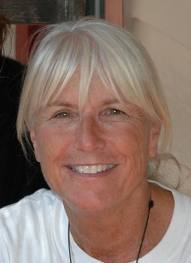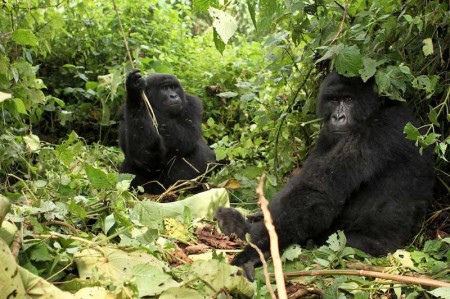Giorgianne Nienaber (*)
08/12/12
 Congolese foreign minister Raymond Tshibanda this week rejected a call by the International Conference on the Great Lakes Region (ICGLR) to establish a regional African military force to quell violence and insecurity in eastern Congo. The latest conflict has displaced 280,000 people since April. Tshibanda's dismissal of a regional peace plan that is African-generated is puzzling, until one considers Tshibanda's reasoning and his alternative.
Congolese foreign minister Raymond Tshibanda this week rejected a call by the International Conference on the Great Lakes Region (ICGLR) to establish a regional African military force to quell violence and insecurity in eastern Congo. The latest conflict has displaced 280,000 people since April. Tshibanda's dismissal of a regional peace plan that is African-generated is puzzling, until one considers Tshibanda's reasoning and his alternative.
"We Don't Want Them to Survive As an Ideology"
Besides resisting an African solution to an African problem, Congo is rejecting negotiations with the M23 rebel group who say they want to enforce the tenets of the March 2009 Goma Peace Accord. M23 has consistently defeated the Congolese army and has set up a regional operations center at Rutshuru. By many accounts, other rebels groups as well as dissatisfied FARDC soldiers who are underpaid, underfed, and undersupplied are joining the ranks of the M23.
A statement by foreign minister Tshibanda speaks volumes.
We don't want them (M23) to survive as a movement, as an ideology, we don't want to see their actions continue… there is no question about it, and there is nothing to discuss, to negotiate.
The name "M23" comes from the date the peace accord was signed and, rebels say, soon violated by Kinshasa. You can read the accord here. The agreement is straightforward in its assurance that local police forces provide security, that the laws of the Democratic Republic of Congo be enforced, and that the former CNDP achieve recognition as a legitimate political party.
That, in a nutshell, is the "ideology" that the government of DRC wants to squash.
But Congo is not talking about the murderous FDLR, remnants of those responsible for the Rwandan genocide. The FDLR has filled the vacum of territory abandoned by the Congolese army in their retreat from the M23.
Officials at Virunga Park filed this report on their blog.
Yesterday we received news that the Eastern Sector of the Park has come under FDLR control. This is very worrying, because our relationship with the FDLR is not good. The FDLR are a violent militia group from Rwanda largely made up of combatants considered to be responsible for the genocide in Rwanda in 1994. Most of the our 12 rangers who were killed last year were killed during attacks on our positions by the FDLR.
The military advances by the M23 in the past few days has caused the Congolese military to withdraw, but the M23 have not advanced as much as the military have fled, and the empty ground in between is being filled by militia groups.
Apparently, the FDLR ideology is acceptable to Kinshasa.
Congo's Collusion with the UN
According to a statement reported by Reuters, foreign minister Tshibanda said Kinshasa would accept soldiers from certain central and east African states as part of an international mission, but not from Rwanda and neighboring states. The Congo government also prefers that UN forces engage the rebels, since UN forces are already in place.
Rwanda and Uganda have both denied accusations by UN officials that their governments provided support for the M23 rebellion. Rwanda met with UN investigators in recent weeks to rebut the GoE interim report that was prematurely leaked to the press by the UN. The UN force in Congo, MONUSCO, has been under fire for its failure to create stability despite a yearly budget of 1.2 billion USD and a force of 20,000.
A source close to the negotiations told OEN, "We consider this (ICGLR statement) a good outcome because it is a regionally owned and driven solution that is meant to produce results quickly. MONUSCO will not be happy about this, but they have had more than enough time to resolve this and they didn't. While all this was going on, Congolese at the summit were actively sabotaging today's agreement, distributing an unsigned 'petition' from 'the Congolese people' listing all the accusations in the GoE report and demanding action against Rwanda."
MONUSCO has more than the ICGLR plan to replace them with an African force to be unhappy about.
UN Crimes of Sexual Violence
Congo prefers to reinforce the failed UN mission, even though severe allegations of sexual violence against Congolese girls have once again been leveled at MONUSCO forces, this time by Dr. Victoria Fontan, head of the Department of Peace and Conflict Studies at the University for Peace in Costa Rica.
Prof. Fontan came upon an impressive new beach resort called Hotel Uvira. "Built only four months ago, Hotel Uvira was an immediate success among UN peacekeepers. Its Congolese owner was amazed at the speed at which reservations came. After a few days, the grim reality dawned on him. The resort of his dreams had become a prostitution hot spot. But not for just any kind of prostitution. This one involves teenage girls. And the most reliable guests are the Russian pilots of the UN fleet.
These are the same pilots who fired on a group of villagers in a banana grove, click here, killing at least one woman in July.
Good Rebels vs. Bad Rebels
Have critical thinkers ever noticed how "rebel" groups, which can also be termed "people's rebellions," are dubbed "good" or bad" by the media and governments, and that those labels often change?
Was George Washington a "rebel" or a freedom fighter? Was Crazy Horse a freedom fighter for indigenous rights or a "savage outlaw," as defined by the United States government?
Consider Sitting Bull's assassination and the subsequent massacre by US government forces at Wounded Knee when the United States 7th Cavalry opened fire and killed defenseless men, women, and children. It is similar to what the UN is doing with their attack helicopters strafing women in banana groves. In recent American history the Native Americans were "bad" and the US cavalry "good." What about the Libyan rebels? Then there is Braveheart, now considered a hero, but once considered a bloodthirsty rebel? History bestows the mantle of "good" and "bad," as perceptions and "acceptable" ideologies change–ideologies like the Goma Peace Accord that the Congolese foreign minister wants to eliminate.
Here is an eyewitness account from Oglala Lakota Chief American Horse, who watched the slaughter at Wounded Knee. He was considered "bad" at that time because he was Native.
There was a woman with an infant in her arms who was killed as she almost touched the flag of truce…A mother was shot down with her infant; the child not knowing that its mother was dead was still nursing…The women as they were fleeing with their babies were killed together, shot right through…and after most all of them had been killed a cry was made that all those who were not killed or wounded should come forth and they would be safe. Little boys…came out of their places of refuge, and as soon as they came in sight a number of soldiers surrounded them and butchered them there.
Now, white people consider it "good," "cool," and politically advantageous to have Native American heritage.Consider Senate candidate Elizabeth Warren in Massachusetts. She ticked off the Cherokee when she claimed Cherokee ancestry.
Aljazeera recently posted a video that shows the results of the M23 takeover of the town of Rutshuru. What is evident is an implementation of the Goma Peace Accord. Life does not look unpleasant under the "bad" M23. "The M23 rebel army, which seized control of areas along the border with Rwanda, is now establishing its own administration, complete with ministers, committees and local councils," Aljazeera says.
Why would Congo want to stamp out this "ideology" of provincial control over provincial affairs? Could it be that instability promotes warlords, smuggling, payoffs and corruption that benefit the powerful in Kinshasa?
Why not eliminate the FDLR genocidaires?
Having been in eastern Congo three years ago and having experienced life under FARDC and the CNDP, what I am seeing in this video is familiar and preferable to the threats of drunken FARDC soldiers, extortion, scares from mercenary rebel groups along the backroads, and aggressive sexual innuendo. This writer has seen both sides of the conflict and spent two days in "detention" in a Goma under FARDC and the Secret Police. Count me in with Sitting Bull and the M23 rebels. I'd like to be on the right side of history on this one.
Here is a suggestion to the M23. Your name is terrible. "M23" holds an emotional and moral context for you of broken promises. You are fighting for regional control over regional issues and promises made on March 23, 2009. Some of us get that, but most people over here in the West hear "M23" and think of a tank or weaponry–it sounds very military. Plus, the international press is solidly against you. You do need a complete makeover.
Ditch the name "M23." Call yourselves the "Good Rebels." Define yourselves. Don't allow the media and foreign governments to define you. Chief Sitting Bull, a Lakota Medicine Man, was considered the last Sioux to surrender to the U.S. Government. They paid him back by killing him after they broke treaty after treaty. Sitting Bull would have had an easier time of it with a good public relations person. Maybe he just needed a name change. The broken treaties could be compared to the broken promises of the Goma Peace Accord.
The FDLR are definitely the bad rebels, but Kinshasa is pinning "bad" on you. Be careful.
(Apologies to my native friends if I took liberties with your history in drawing this analogy)
(*) Georgianne Nienaber is an investigative environmental and political writer. She lives in rural northern Minnesota, New Orleans and South Florida. Her articles have appeared in The Society of Professional Journalists' Online Quill Magazine, The Ugandan Independent, Rwanda's New Times, India's TerraGreen, COA News, ZNET, OpEdNews, Glide Magazine, The Journal of the International Primate Protection League, Africa Front, The United Nations Publication, A Civil Society Observer, Bitch Magazine, and Zimbabwe's The Daily Mirror. Her fiction expos- of insurance fraud in the horse industry, Horse Sense, was re-released in early 2006. Gorilla Dreams: The Legacy of Dian Fossey was also released in 2006. Nienaber spent much of 2007 doing research in South Africa, Rwanda and the Democratic Republic of Congo. She was in DRC as a MONUC-accredited journalist, and has been living Southern Louisiana investigating hurricane reconstruction and getting to know the people there since late 2007. Nienaber is currently developing a documentary on the Gulf of Mexico Dead Zone, and continuing "to explore the magic of the Deep South." She is a member of the Memphis Chapter of the National Academy of Recording Arts and Sciences.

